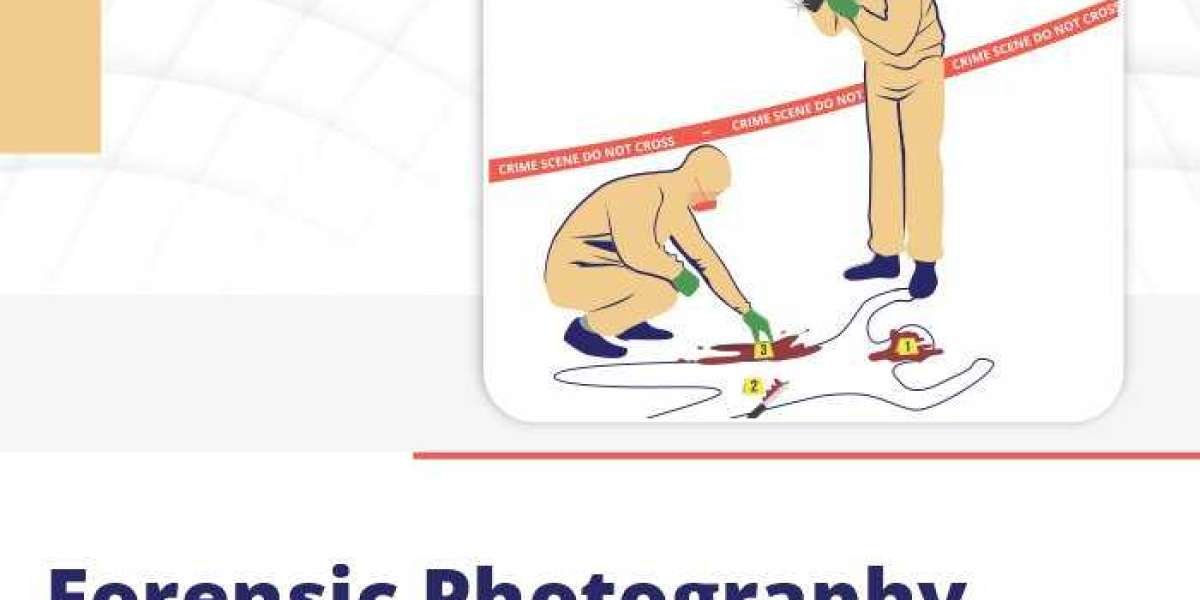Forensic photography otherwise known as crime scene photography entails taking of photographs of crime scenes, and any identifiable objects or items that will be useful in the investigation. These photographs capture the conditions of a crime scene at some time in order to capture evidence that will be useful for comparison, evaluation and incrimination.
It is not an ordinary photo documentation process therefore it necessitates accuracy, skill, and understanding of the forensic procedure. The photographs must be tendered as evidence in court and should be a record of the scene that can be referred back to in the event that the case takes months or even years before being heard.
The Role of Photography in Investigation in Criminal Law
1. Documentation of Evidence
Another main function of forensic photography is to capture the evidence at a given scene in its natural form. From a crime scene, things may shift or degrade and such details are captured through crime scene photographing. They can be applied in reconstructing events and corroborating the testimonies of witnesses when giving evidence in a court of law.
2. Clarity in Legal Proceedings
Photographs are used in courtrooms and they are an essential means of proving something or someone right. Good photographs assist jurors and judges in establishing a background of the crime scene hence making a sound decision. The images used in the case must, therefore, be of high quality and untampered with in order that their contents can influence the case in some way.
3. Objective Record
To this view, forensic photography provides independent documentation of the evidence. Unlike the witness whose account is likely to be distorted by human memory, photos depict the scene in the right perspective. This assists in sustaining the credibility of the investigation.
Skills Attained in an Online Forensic Photography Course
The forensic photography course gives a basic groundwork for someone who wants to be a forensic photographer. Here are the core skills you’ll acquire:
1. Learning about the Protocols at a Criminal Scene
You will find out how the scene is usually prepared for shooting, how long it takes, and whether the evidence has to be photographed before being shifted around. Corrective methods are critical in order to preserve the credibility of internal proof.
2. Digital Photography Equipment Control
In order to obtain high detail, clean, and clear photographs one needs to know about cameras, lenses and the lighting equipment. The courses offered online show how to choose appropriate gear depending on the situation, be it capturing a wide-angle scene, or close up of specific evidence.
3. Technical Photography Skills
Forensic photography must be very accurate. You will be trained on how to do the exposure, focus and framing that makes all photographs well defined. Some of the instructions are how to avoid using a camera while walking and getting blurred images or how to prepare for low light conditions.
4. Getting Familiar with the Legalities
The documentation of evidence is a crucial process in the legal process, and therefore there are legalities of forensic photography. What makes sense is taking an online class that will cover issues such as admissibility, chain of custody, and handling of photographs so that they can be evidence that will hold up in court.
5. Image Analysis and Image Processing
However, apart from capturing the photograph, forensic photographers are supposed to scrutinize them and sort out the one filed or presented. Distance learning programs usually cover procedures of enhancing the quality of images without manipulation of the images’ originality.
Why Forensic Photography Course Online?
1. Flexibility
Of all the major advantages digital courses have, flexibility seems to be at the top. Flexible learning schedule allows you to combine efforts with other important life activities. As if it may happen that you are a full time learner, a working man/woman, or even anyone who wants to change his/her career, an online course gives you the freedom to make your education work for you.
2. Expert Instruction
Forensic photography may also be taken online and the majority of the courses are offered by professionals in the field. This offers students an opportunity to learn about the industry, best practices, tips from professionals that would assist them in fashioning their careers.
3. Opportunity to Obtain a Great Number of Materials
During an online program, usually the content is diverse and may include video demonstrations, practice exercises, case-studies and discussions. These resources can be used to reiterate the concepts taught in the course and give examples of use.
4. Cost-Effective
It is relatively cheaper than in person training programs; this is because it takes less time and money to prepare for. Since there is no physical classroom, many of the online courses can be taken at a cheaper price offering the same quality of teaching.
What is taught in a Forensic Photography Online Course?
A well-structured online forensic photography course will cover a range of topics, including:
1. Course: Forensic Photography
- The foundations of forensic photography in criminal investigations.
- Main distinctions between forensic and conventional photography.
2. Equipment and Tools
- The kind of cameras and their applications in the process of crime investigation.
- A range of tools that are crucial for Crime Scene photography including lenses and lighting.
3. Documenting Crime Scene Analysis
- The best way through which a crime scene can be photographed can be made to follow a particular sequence or order.
- Methods used for photographing various forms of evidence such as fingerprints, blood stains, weapons and so on.
4. Legal Considerations
- Exploring chain of custody.
- How to care for the pictures to ensure they are acceptable as evidence in a law court?
5. Digital Image Processing and Presentation
- The alchemy of improving the reception of photographs while not distorting the picture.
- Preparation of images for presentations and other reports to be used in court.
Conclusion
In legal work, forensic photography is key in criminal investigation since it helps capture the evidence of a case. To be a good forensic photographer, you need technical skills and certain legal knowledge, which is why when taking an online course you get both. For the beginner or the aspiring forensic photographer who wants to polish his or her craft, there is an online course available that offers the freedom of home study, academic tools, and instructors who are also experts in the field.
Being a lawyer if one loves both photography and justice then the field holds very many opportunities that one can undertake to practice and help in the legal process and solving of criminal matters.













